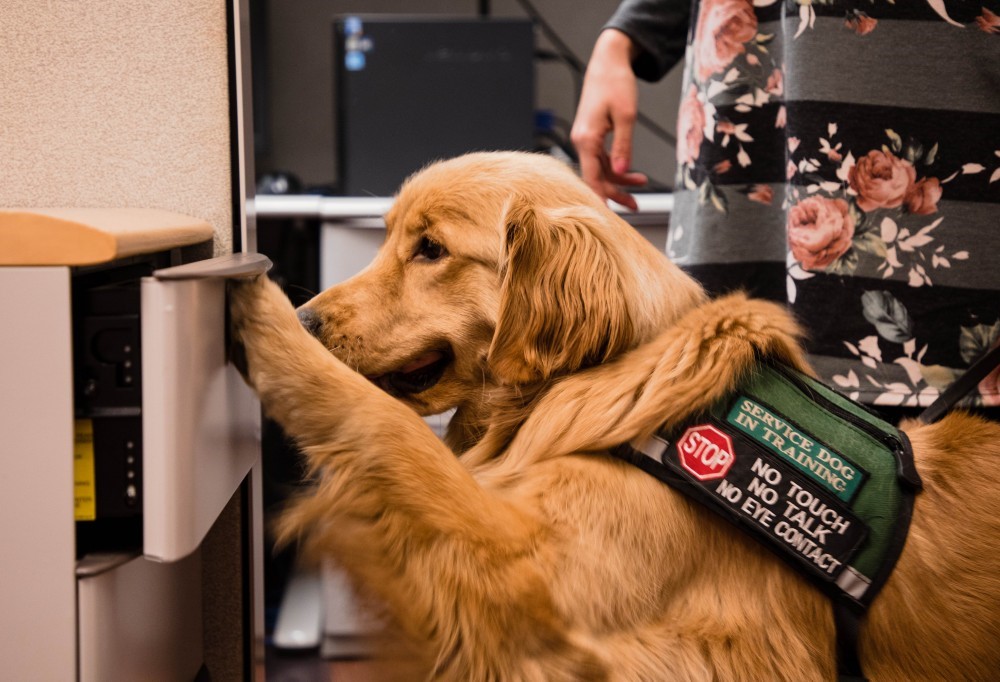
At the Rocky Mountain ADA Center, we receive many requests for information about service animals. This includes people interested in using a service animal and organizations that interact with the public. It is straightforward to explain the rights and responsibilities outlined in the ADA. Yet there is no rule book for how to interact and treat service dog users with kindness and respect. These are a few things to consider when you meet a service dog user.
1. Relax
People may worry they will make a mistake when interacting with people with disabilities. This can make their behavior awkward or different from how they treat everyone else. Remember to relax and be yourself. Speak to the service dog user, rather than the dog, and ask if they need assistance. Do not assume that because a person has a disability, they need help.
2. Distractions
Service dogs are like medical equipment. You would not ask someone to borrow their crutches or oxygen tank, so in general, you should not ask to pet a service dog. They have a job to do, and need to focus. This also means trying not to distract the animal. For example, do not eat food and drop crumbs, or stare and seek the animal's attention. One thing to keep in mind with this rule, is that service dog users are individuals. Some may be comfortable with the occasional visitor and would permit you to pet the dog if you ask. Other people may not enjoy talking to strangers or don’t have time for small talk. Like all social interactions, look for cues. For example, if the dog has a vest with patches that say DO NOT PET, you should not ask them to pet the dog. It is a misconception that allowing a service dog to be pet is proof they are not a “real” service animal. Dogs and humans are social animals, so it is okay for a service dog user to allow their dog to socialize. Service dogs have an important job to do, and like people, they can enjoy a short break to meet someone new.
3. Need, not Want
Service dog users often hear people say, “I wish I could bring my dog everywhere”. Please be aware that this is an inappropriate and unkind thing to say. This may be an attempt to connect with the service dog user through a shared love of dogs. However, this statement suggests, “I wish I was disabled so I could have special privileges”. Service animals are a necessity for people with disabilities. They do not want to bring their dog everywhere, but rather, they need this medical equipment to maintain their independence.
4. Learning More
I have one final recommendation for you to consider. People are often curious about what its like using a service animal and the types of work service dogs can perform to assist people with disabilities. It makes sense that if you want to learn more, you go to an expert source, and that may include asking questions to a service dog handler you meet out in public. For some service dog users this is a great opportunity to educate and share their personal experience. Other service dog users may dread strangers interrupting their day and asking invasive questions. It is not the job of people with disabilities to educate the public, but at the RMADA we are always happy to answer your questions and provide education. If you are curious and want to learn more, you are always welcome to contact our Center if you need advice or clarification on a specific situation. You may also further your understanding through our online training options, or request in-person training for your organization for more in-depth information.